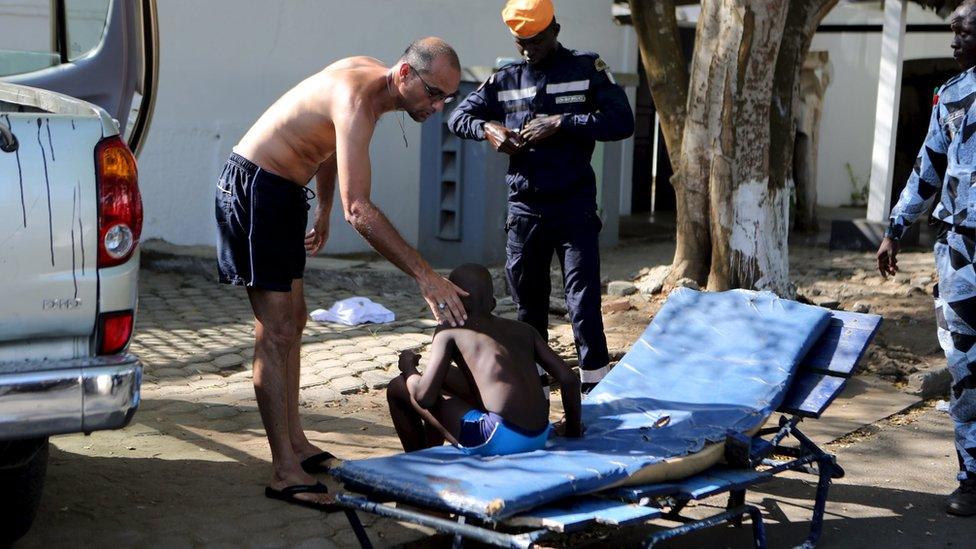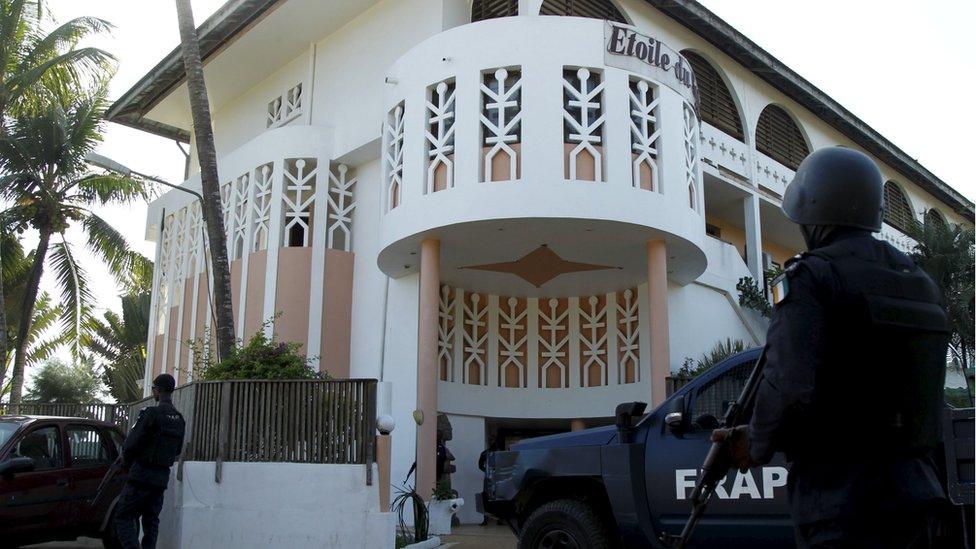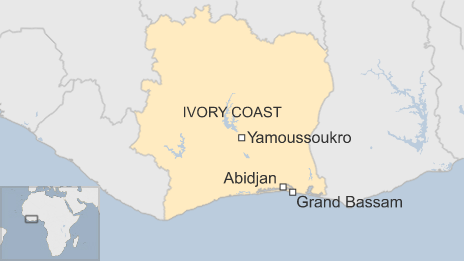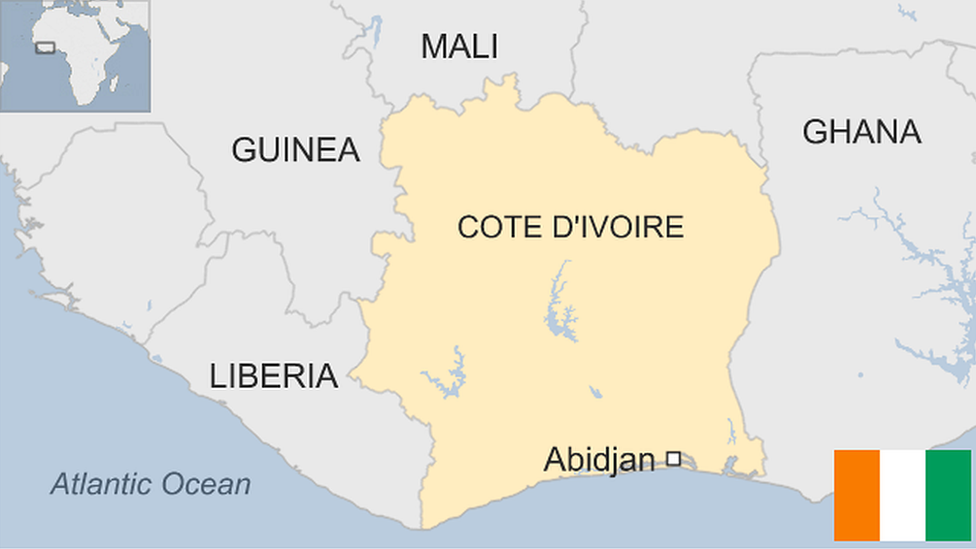French nationals killed in Ivory Coast beach attack
- Published
The BBC's Maud Jullien visited the scene of the attack
Four French nationals are among the 18 people who were killed by Islamist militants at a beach resort in Ivory Coast on Sunday, the French President Francois Hollande has said.
Al-Qaeda in the Islamic Maghreb (AQIM) said it was behind the gun attack.
Grand Bassam beach is popular with locals and foreigners and people from at least six countries were killed in the attack.
It is the first jihadist attack in Ivory Coast.
A total of 21 people died in the attack, including three gunmen and three security force members, officials said.

Who are the victims?
The identity of only some of the victims have been released so far.
Three members of the Ivorian special forces, who were killed responding to the attack. President Alassane Ouatarra paid tribute to the "brave soldiers who lost their lives defending the homeland."
Four French nationals were killed, according to, external the office of the French President, though it has not identified them:
Two of the French victims, aged 75 and 78, had retired in the country after living there for many years, French media report, external. They were riding bicycles in the town when the attack started.
One male victim was the boss of an IT company which had been operating in the country for nearly 30 years. His stepson told Europe 1 radio that he had just finished building a house in Grand Bassam a month earlier.
The final French victim, aged around 50, was working for a subsidiary of the French multinational conglomerate Bollore.
One German. Henrike Grohs, aged 51, was head of the Abidjan branch of Germany's Goethe Institute cultural body. She was passionate about Ivorian culture and was a massive reggae fan, a friend told local media.
One Macedonian - The UN mission in Ivory Coast confirmed, external that Anita Andreevska Mitrovska, a volunteer with its engineering section who has been in the country since December, was among the dead.
Other victims included foreign citizens from Burkina Faso, Cameroon and Mali, no further details about their identities have been released.

President Alassane Ouattara visited the site, about 40km (25 miles) from the commercial capital Abidjan, on the evening of the attack.
He promised that security in Ivory Coast, the world's leading cocoa producer, would be stepped up.
"These cowardly attacks by terrorists will not be tolerated," he said.
He met ministers on Monday in an emergency meeting and announced three days of national mourning.
Footage shows holiday makers fleeing and a man with a gun
AQIM has been behind two other similar attacks in West Africa in the last four months, attacking hotels in Mali and Burkina Faso.
BBC regional reporter Maud Jullien says Ivory Coast has been identified as one of several countries in West Africa at risk of being targeted by Islamist militants.

Analysis: Mina al-Lami, BBC Monitoring
Al-Qaeda in the Islamic Maghreb (AQIM) was quick to claim responsibility for the attack. It published its claim in four languages - a sign that the group was seeking to boost its media profile to match its recently enhanced operational capabilities.
The brief statement in Arabic, English, French and Spanish was published as an image on AQIM's Twitter account and through the messaging app Telegram.
The format resembled the style used by jihadist rivals Islamic State group (IS), indicating that AQIM wants to emulate IS's more advanced media operation.
AQIM said in the statement that three of its militants were responsible for this attack.
AQIM has been almost dormant in the past few years. But it stepped up its presence after announcing in December that it had partnered with the more active militant group al-Murabitoun which is known for high-profile hostage taking. This allowed Al-Qaeda to claim credit for al-Murabitoun' s hotel attacks in Mali in November and in Burkina Faso in January.

A witness to Sunday's attack told AFP news agency that "heavily armed men wearing balaclavas" had opened fire near the L'Etoile du Sud hotel, which was full of foreign visitors.
One of the people on the beach, Belgian Charline Burton, told the BBC she grabbed her daughter and ran to hide in a toilet.
"We could hear them shooting so we could hear that they were going right next to where we were. It was a miracle the baby didn't cry," she said.

Several people were injured in the attack

The Etoile du Sud hotel was targeted


Are you in the area? Have you been affected by what's happened? If it is safe to do so, you can share your experience by emailing haveyoursay@bbc.co.uk, external.
Please include a contact number if you are willing to speak to a BBC journalist. You can also contact us in the following ways:
WhatsApp: +44 7525 900971
Send pictures/video to yourpics@bbc.co.uk, external
Tweet: @BBC_HaveYourSay, external
Send an SMS or MMS to +44 7624 800 100
- Published24 July 2023
